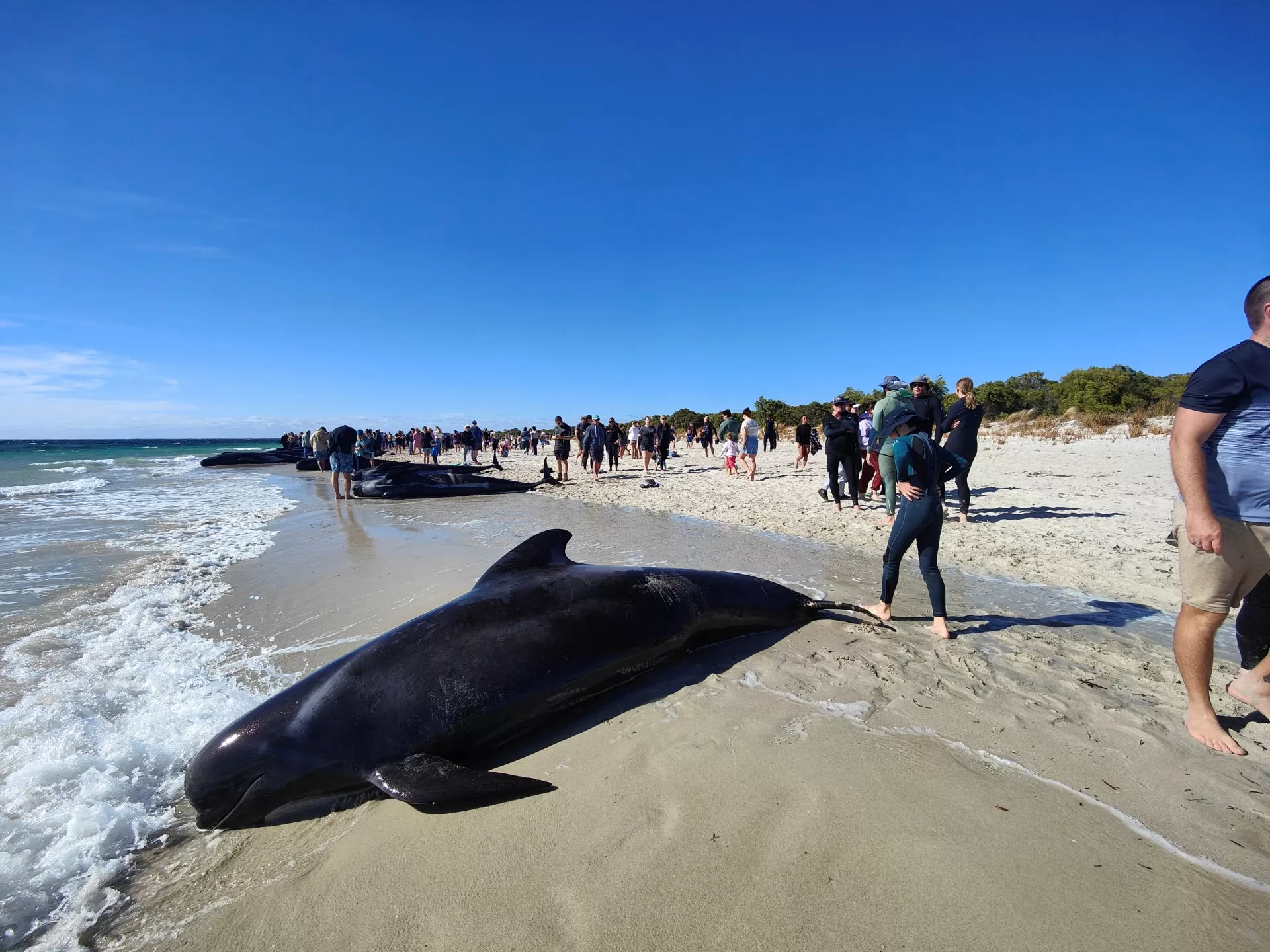Exact reasons for beaching unknown but mammals are highly sociable and may follow podmates into danger.
Dozens of whales were stuck in shallow water on Thursday morning spread across about 500 metres (0.31 miles) at Toby Inlet in Geographe Bay near Dunsborough. The region is less than 250km (155 miles) south of state capital Perth.
Footage from the area showed wildlife preservation teams and local authorities joined by many volunteers to help them get back to deeper waters.
Pia Courtis, a spokesperson for the Department of Biodiversity, Conservation and Attractions, said samples would be taken from the deceased whales before removing them from the shores.
More than 100 whales were moved offshore, but Courtis said they may return.
“We’ve got vessels out on the water and we’ve also got a spotter plane up in the air that’s doing searches over every couple of hours to see where they are,” she said.
“So far so good, they haven’t made it back to shore.”
The department said that once fully beached, whales usually had to be euthanised as that would be “the most humane outcome”.
There are a further 20 whales in a pod about 1.5km offshore. Another pod of about 110 animals are together closer offshore. https://t.co/H26PrW3f2o
— Shark Safety WA (@SharkSafetyWA) April 25, 2024
Mass strandings of pilot whales are not uncommon in Australia and New Zealand. But after decades of such events, scientists do not fully understand why they occur. Some researchers think pods go off track after feeding too close to shore.
Pilot whales – which can grow to more than 6 metres (20 feet) long – are highly sociable, so they may follow podmates who stray into danger.
Some stranding incidents have been linked to underwater noise pollution caused by humans, which could affect the animals’ sensitive hearing.
Wildlife experts have said the whales’ unusual behaviour could also indicate stress or illness within a pod. Pilot whales often maintain close relationships with their pods throughout their lives.
About 500 pilot whales died when they beached on New Zealand’s remote Chatham Islands in 2022.
The latest mass stranding event in Western Australia occurred at Cheynes Beach in Albany in July 2023, where at least 90 of the mammals died.
The largest beaching of whales in Western Australia took place in Dunsborough in 1996 and involved 320 long-finned pilot whales. All but 20 of the animals were rescued and escorted back into deeper waters.
Authorities have asked people not to attempt to rescue the whales without direction from experts as they may cause further injury to the animals, hinder coordinated rescue efforts, or hurt themselves.
